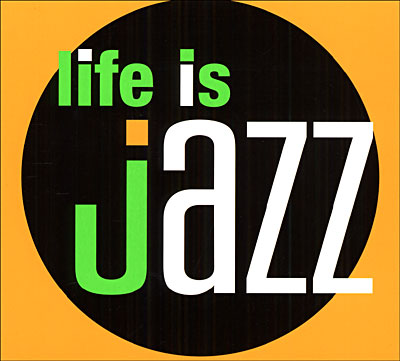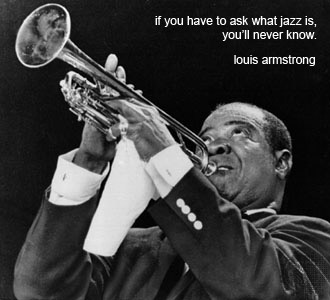
Part 1 of 3
The beginnings of jazz go back to the tribal beats from black African and West Indies slaves. Can we say that these people were savages? Or did they have a society that was simply different from the European-based societies of those who took them and made them slaves. It can seem now that making slaves out of fellow humans is actually savage.
Can we assume that these people were living civilized lives in places that might have included wild jungles. Could we learn from going back before slavery in Europe and America? Perhaps the perception of wild and savage black jungle dwelling people needs to be unpacked and demystified.
I have to admit that I don’t know enough about this. It is not part of the history books. Why would it, since showing that the people who were taken to be slaves actually had a civilized society in what might seem a wild environment compared to the cities of Europe and America?

If this is true, then we can see a cycle of humans being uncivilized, becoming civilized and then de-civilized once again and then a re-civilizing. The white people who took slaves were part of a civilization that once had to conquer an uncivilized world of some sort. In taking other human beings, dehumanizing them by saying that being black and from a different ‘uncivilized’ part of the world, makes them savage and less than human, is actually a de-civilizing approach to life. It is not civil to dehumanize. Slavery dehumanizes.
Could this idea of cycling from uncivilized to civilized to de-civilized and then re-civilizing be common in other parts of human history? It would be worth exploring this.

Where does jazz music fit into the picture? Jazz music emerged from the black slaves of America. Why did it not also emerge from the slaves in Europe? Could it be that the Europeans already had a musical and artistic tradition that had developed over centuries? America was young and the arts could reflect the lack of tradition and find something new. There were many flavours of art pouring into the new societies of America. They came from many parts of Europe and other parts of the world. For the black people who were being brought into the new American societies, it was a world where many forms of music from other places in the world, mostly Europe, could be melted together—including their own.
Perhaps it was the musical foundation of the beats that formed the basis of the new music that would eventually become jazz. The beats of the music of the black people had once civilized and humanized these people to live in what would seem to city people as wild jungles. Even today, African music has a harmonic togetherness and a swing that is uplifting to the soul.

Notice the word ‘harmonic’ or ‘harmony.’ If the beats introduced by the black people were a foundation, harmony was another aspect they also brought to American music. A truly human civilization means living in harmony with each other and the environment. Harmony is produced when more than one note sounds at the same time, yet are harmonically related and form the basis of chords.
Chord: Middle English cord, from accord. The spelling change in the 18th century was due to confusion with chord. The original sense was ‘agreement, reconciliation,’ later ‘a musical concord or harmonious sound’; the current sense dates from the mid 18th century.
Harmony and agreement are very humanizing. They bring peace. This sounds very civil. We often hear someone say that we need to live in ‘peace and harmony.’ We are in agreement with each other, we are in ‘one accord.’

Be sure to read The Jazz Lifestyle.
Let’s think about it!
© 2015 by Bob Grahame
Please do not reproduce this article, or any part, in any manner, without my permission. Thank you!

